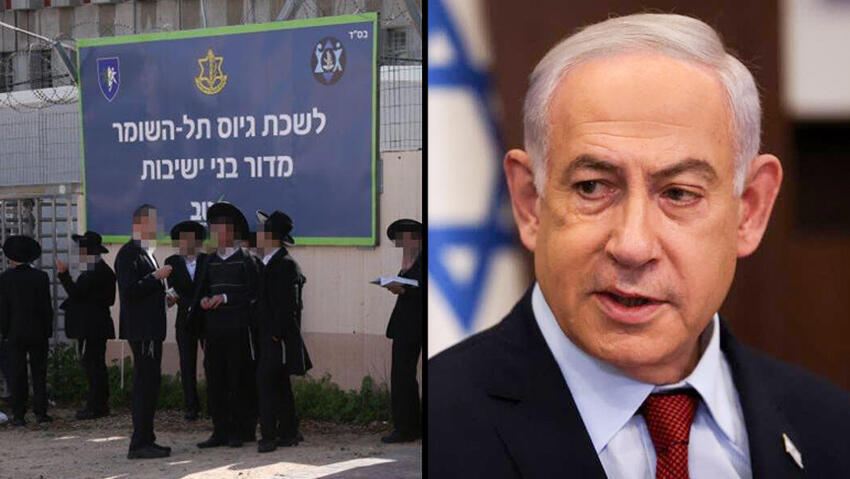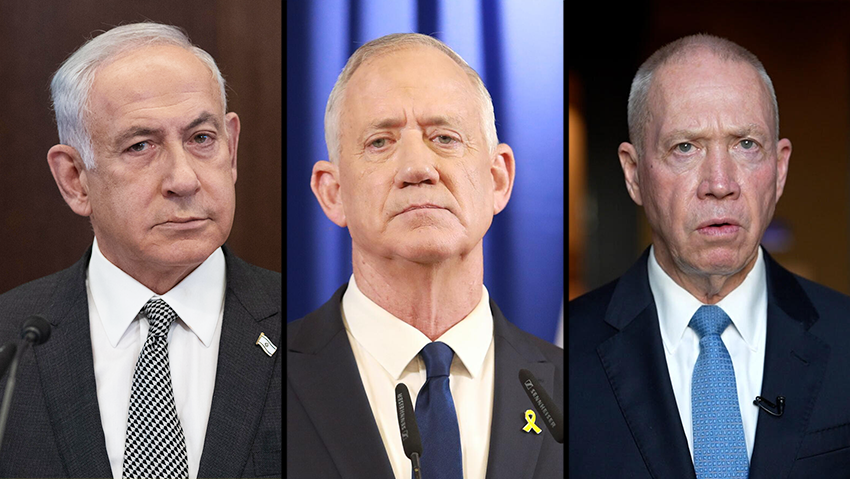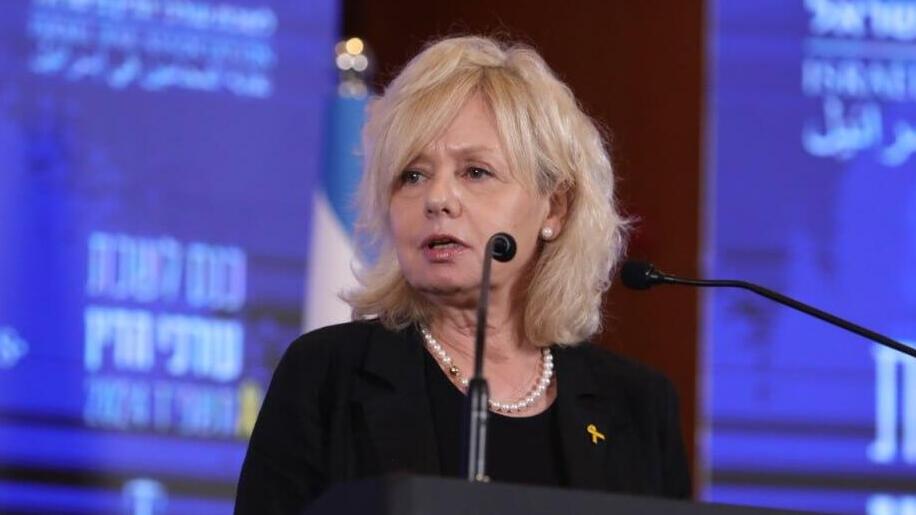Getting your Trinity Audio player ready...
The Knesset plenum will vote on Monday on Prime Minister Benjamin Netanyahu's proposal to apply the continuity clause - which allows laws that have passed in first readings in the past to be put up for additional voting - to the ultra-Orthodox draft law from the previous Knesset pushed at the time by National Unity party head Benny Gantz, amid heightened tension in both the opposition and coalition.
Senior political sources say there is uncertainty regarding the votes of some Likud members who have already expressed opposition to the law and clarified that they would find it difficult to support it in its current form.
Defense Minister Yoav Galant will vote against the bill, his associates say. Gallant decided to take the rather drastic protest step of appearing in the Knesset plenum and publicly oppose the promotion of the conscription exemption, after already making clear his opposition in previous public statements. The consequences of Gallant's dramatic move are not yet clear, including what punishment he may receive - such as dismissal from his position.
3 View gallery


Haredi men at an IDF recruitment center, Prime Minister Benjamin Netanyahu
(Photo: Motti Kimchi, Yonatan Zindel)
Another uncertainty were the votes of the Arab Knesset members; however, the United Arab List (Ra’am) and Hadash-Ta'al parties officially announced Sunday that they would vote against the proposal.
The vote is mainly technical but has broad implications for the future of Israeli society. The issue of drafting the ultra-Orthodox sector is currently one of the biggest threats to Netanyahu's coalition, even after Gantz’s resignation from the emergency government announced on Sunday. However, the Likud party refuses to close ranks and align for now, and Knesset lawmakers and ministers recently declined to commit to voting in favor of the law.
Gallant has often spoken out against passing the law unilaterally and without broad agreement. He noted before Gantz's resignation that at least one major opposition party needs to support the law, which doesn’t appear to be the case so far.
Foreign Affairs and Defense Committee Chairman Yuli Edelstein said the current bill’s draft is unacceptable to him because it doesn’t meet the military’s needs.
"The IDF is short 7,000 soldiers, and supporting the law endangers the lives of Israeli citizens," an Israeli activism forum working to promote the enlistment of all sectors in the Israeli public said on Monday.
On the other hand, the opposition is seen cooperating ahead of the vote, which has been marked as dramatic, and full attendance of its members in the Knesset is expected.
Gantz is expected to oppose the law, warning its approval could lead to a schism in Israeli society. He also noted at the time the bill was initially drafted in the previous Knesset that it was only a temporary solution. "It’s a first step toward the comprehensive service plan I intend to promote, which will address the State of Israel’s security and social needs for decades to come," he said.
The law being presented on Monday is essentially the same draft bill that passed its first reading in the previous Knesset, initiated by Gantz, in a maneuver by Netanyahu against his former War Cabinet partner. A statement from the Prime Minister's Office said that the decision was made "to bridge disagreements and bring about broad agreement."
Attorney General Gali Baharav-Miara opposed the law in a legal opinion, saying the proposal could not be subject to the continuity clause because the legal framework is "not up-to-date." Despite her opposition, the Ministerial Committee approved the proceeding of the legislation unanimously, while representatives of the ultra-Orthodox parties were absent from the vote.
Last week, the Supreme Court convened with a panel of nine judges to discuss appeals demanding the conscription of yeshiva students. The government representative, attorney Doron Taubman, said the government would not agree to conscript 3,000 yeshiva students.
Presiding Judge Noam Sohlberg responded: "It’s impossible to meet these targets in the middle of a war? This is a first, basic and minimal step." The Attorney General’s representative clarified the conscription of 3,000 students is only an "immediate step." Ultra-Orthodox protesters angry at the ongoing discussion protested in the streets and blocked roads in Bnei Brak and Jerusalem.




